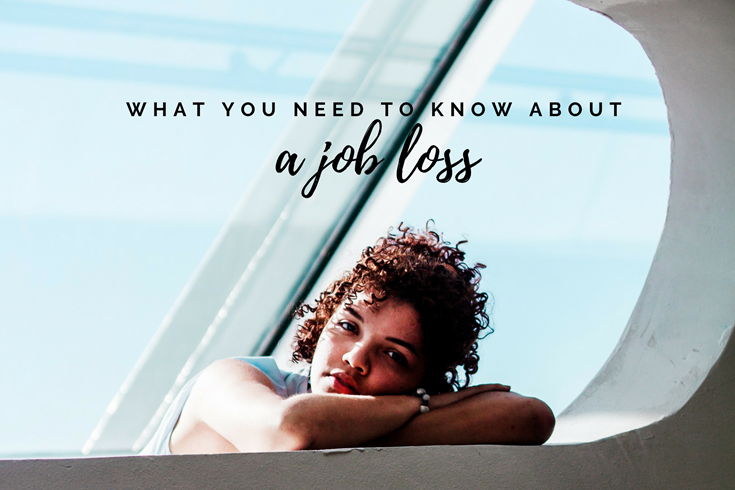|
|
As a career coach and outplacement counselor, I work with many people who’ve been laid off from their jobs.
Some saw the writing on the wall and knew the layoff was coming.
Others were completely blindsided.
If you expect (or even suspect) you’ll soon be losing your job, here’s what you need to know.
What to Expect When You’re Expecting a Job Loss
1. Expect to experience grief.
A job loss, especially an unexpected one, can lead to the same stages of grief experienced with the death of a loved one.
The stages of grief don’t always happen in order. Some repeat and some may last longer than others.
It’s important to understand this is natural and to let yourself feel and express this grief.
It’s also important not to wallow in your feelings or let negative reactions spill over into your job search. Hiring managers and recruiters can easily pick up on any negative feelings or attitudes when interviewing you. You have to learn to manage your emotions during those crucial interactions.
2. Expect to have a new outlook on your career and life.
One of my clients who suffered a layoff had a very positive outlook on her situation.
She started calling herself “funemployed” because she now had the time to do some things she didn’t have time for when working full-time.
Once she had her few weeks of fun, she then turned her focus toward her dream of starting her own business.
A layoff can be used as a time to pursue your passions, to discover new passions, or to give yourself or your family some much-needed quality time and TLC.
3. Expect it to take time to conduct a job search.
It’s important to have realistic expectations when it comes to how soon you may find your next opportunity.
The average job search can take three to nine months, even in a good job market. You should also expect to spend at least 20 hours per week on your job search.
You must be patient with the process, do everything in your power, and leave the rest up to fate.
Also, you mustn’t take the first thing that comes along, especially if it’s not a good fit. You don’t want to find yourself looking for another job again a year later. Allow yourself to be a little selective for as long as you financially can.
4. Expect online job boards to be (somewhat) a waste of your time.
Most people who find themselves back in the job market immediately jump online and start applying for jobs through job boards.
While you want to use all the resources at your fingertips, you also want to use your time wisely.
Since 80% of the current workforce found their jobs through networking, 80% of your job search should be spent networking.
The other 20% of the time should be spent searching and responding to job ads, preferably with a more targeted approach through LinkedIn, professional associations, company websites, and select job boards. The more specific the job board, the better, as opposed to a large “one-size-fits-all” job board.
5. Expect to take advantage of available resources.
In addition to my work as a career coach, I also work under contract providing outplacement counseling.
This is where a company provides and pays for all career coaching for each person being laid off. It’s usually part of the employee’s severance package.
While most employees opt for this service, I’m shocked at how many who don’t.
I mean, it’s free! The company is paying for this service. Why wouldn’t you take advantage of every resource made available to you?!
If your company doesn’t offer outplacement counseling as part of your severance package, there are still some affordable and helpful options for you to brush up on your job search skills. (See below.)
6. Expect to have to sell yourself.
In today’s job search, accomplishments are king! You will have to sell your experience by showing the results of your skills and previous job duties.
Now is the time to start making a list of your on-the-job accomplishments and start collecting any numbers or figures that quantify the results of your work. Many people fail to collect this information before their layoff.
You should always record this information every six months whether you are looking for a job or not. Then you’ll want to add it to your resume.
Having accomplishments on your resume will help you secure interviews, where you should expect to tell the story of those accomplishments. When backed up with details and quantitative data, your stories will help you land job offers.
In conclusion
A job loss can be devastating.
But, losing a job doesn’t mean you’ve lost the ability to work.
Remember to stay positive, remain realistic, and use the resources available to you.
Resources
- Free advice: free advice is always good and this blog provides a lot of that, from “how-to” tips on resume writing, interviewing, and networking, to encouragement to keep you motivated when the job search gets tough.
- Goal-Achievement Plan: when you subscribe to the paNASH newsletter you’ll receive a complimentary 8-Step Goal-Achievement Plan.
- Affordable online instruction: when your employer doesn’t provide you a career coach or you can’t afford one on your own, there is the option for paNASH’s affordable on-demand videos, available online 24/7.
Related Posts:
- How to Eliminate Negative Self-Talk in the Job Search
- Career Advice No One Will Ever Share With You
- What You Need to Know to Ensure a Successful Career
- Get Unstuck! How to Know When It’s Time to Invest in a Career Coach






